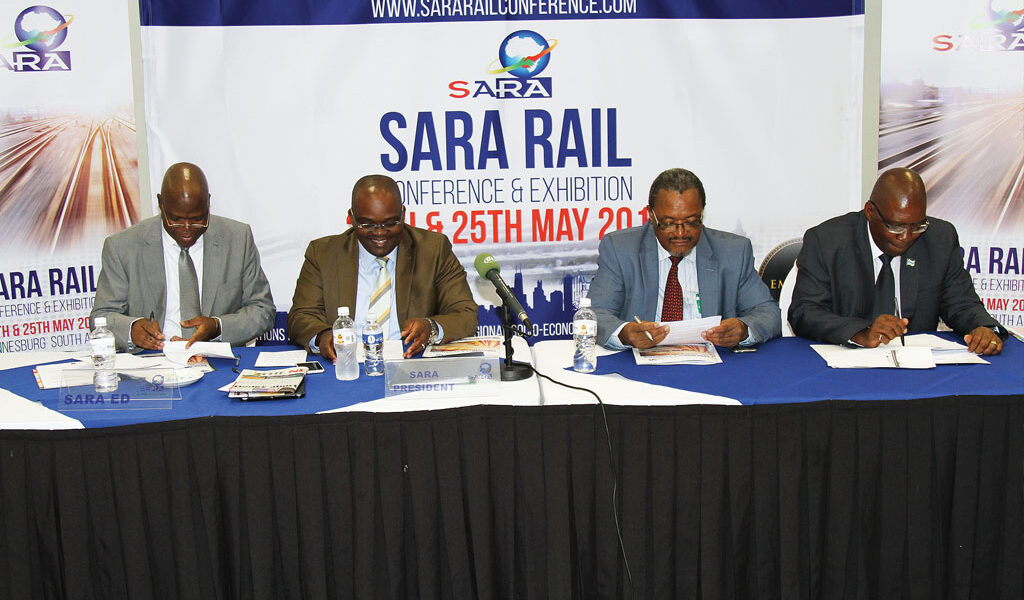Southern African Railway Association worried of low funding for railway infrastructure
TSHIAMO TABANE
It is difficult for Africa to promote inland trade, because the continent is not adequately connected, to allow easy movement of goods between countries, the Southern African Railway Association (SARA) told journalists last week at its rail conference.
SARA, a regional association of railway companies in Southern Africa is worried that governments in the region allocate less funding for the development of rail infrastructure, and this has resulted in missing links and inefficient railway network.
“Today, Africa has the highest level of growth potential but is the least integrated continent in the world, with low levels of intra-regional economic exchanges and smallest share of global trade. Shortage of large scale railway network and infrastructure inefficiencies are the major cause of this situation. Ports in some African countries are inefficient, as they lack capacity and connected to poor network infrastructure,” said SARA Conference Chairman Stephenson Ngubane.
Ngubane stated that for Africa to reach its potential there must be a shared commitment by all countries and stakeholders to work together on the common agenda of integration and speak with one voice, so that difficulties in implementing large-scale regional infrastructure projects can be addressed. “The construction of rail missing links should continue for a better integration of regional rail transport,” he said. According to Ngubane the one stop shop concept common on road and shipping lines, is almost non-existent in railways in the region and the entire continent. “Exporters and importers want a truly one-stop service where the railways would package all the logistics components to deliver products at the nominated destination of the customer. Railways should prioritize the practice of the concept to be more efficient,” he suggested.
He added that to improve their individual efficiency, railways should think about migrating from state-owned entities to autonomous commercial companies, and governments could first invest massively in infrastructure and equipment to allow railways under the new status to work properly towards the target they would have been already assigned to. “One of the ways of developing countries to have the growth of their economies is to allow state owned enterprises to partner with the private sector, where private entities provide asset or service and bear significant risks and management responsibility, with remuneration linked to performance.”
SARA CEO Nkululeko Poya said rail should be promoted as an enabler of regional integration and economic development in the region and the entire continent. “The region is connected by information and communication technology and the biggest challenge now is to physically connect people, communities, governments and business through transport and rail plays a pivotal role given its ability to carry large volumes of people and goods,” he said.
Poya stated that the SARA rail conference and exhibition to be hosted in South Africa, in May next year, is expected to speak volumes on integration of not only the railways, but with roads and ports.

